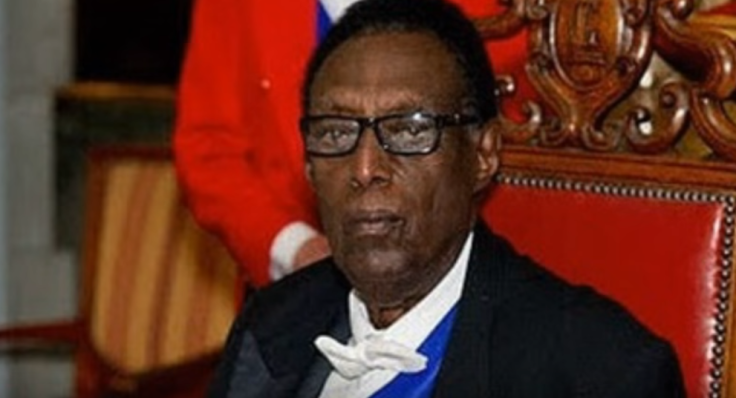All you need to know about monarchy in Rwanda: Kigeli V burial, 'fake king' appointment and RPF's position
IBTImes UK looks at role of monarchy in Rwanda as well as claims of a 'fake king' appointment.

The planned burial of Rwanda's last king, Kigeli V, has been plagued by controversy following the appointment of a successor, which the relatives of the late monarch deemed as "unofficial".
Earlier this month, a communiqué by the Rwanda Royal House, signed by Chancellor Boniface Benzinge, claimed that Kigeli's grandson, 56-year-old Prince Emmanuel Bushayija, had been named as successor.
However, local media reported that Kigeli's family was yet to choose a successor. Journalist Richard Kwizera told IBTimes UK the family stated that Bushayija's appointment was not official.
Relatives added the King's successor will be named following discussions involving the Rwandan government, Rwandans and family members of the King.
Kigeli, aged 80, died in exile in Virginia, US, in October 2016. However, his body was repatriated to Rwanda only in January 2017, following a legal battle among his relatives over where the monarch should be buried.
The monarch will be laid to rest in the Nyanza District, Rwanda's Southern Province, on Sunday 15 January.
Has a 'fake' Rwandan King been appointed?
"Benzinge had named Emmanuel Bushaija to succeed Kigeli and we said: 'Let him name 10 more kings, it's his business'," Pastor Ezra Mpyisi was quoted by news agency KT Press as saying during a press conference on 10 January, in which he represented the family of the monarch.
The Rwandan monarchy does not follow the rule of primogeniture when it appoints a successor.
Mpyisi, a former servant of Kigeli, explained that a successor is normally chosen by the Abiru, a group of traditional historians in the court of the Mwami (king).
"But in this case we have only two people doing it on their own. They just named a 'fake' king," Mpyisi continued.
The US-based King Kigeli Foundation, of which Kigeli was the head, published the announcement of "the New Head of the Royal House". The foundation has not responded to a request for comments.
However, it said on its website that the announcement made by Benzinge – defined as the head of the Abiru – was supported by "a document signed by His Majesty King Kigeli V in 2006, witnessed then by multiple people and notarized and filed with an attorney".
Who is Prince Emmanuel Bushayija?
Bushayija was born in Rwanda in 1960, he worked for Pepsi Cola in Uganda's capital Kampala and also lived in Kenya. He returned to Rwanda in 1994, but has been living in Manchester with his wife and two children since 2000.
"The Royal name of His Majesty Emmanuel Bushayija shall be His Majesty King Yuhi VI," the statement on his appointment said. "His Majesty King Yuhi VI Bushayija is the son of His Royal Highness Theoneste Bushayija and grandson of His Majesty King Yuhi V Musinga."
Bushayija has not yet commented on the appointment.
What is Rwanda's position on the monarchy?
Rwanda abolished the monarchy following a referendum in January 1961. Following the controversy on Bushayij's appointment, James Vuningoma, the executive secretary of Rwanda Academy of Language and Culture (LARC) was quoted by KT Press as saying: "The Rwandan constitution dated 2003 stipulates that Rwanda is a Republic. We don't think there is a successor to the king. Indeed he [Kigeli V Ndahindurwa] is the last King of Rwanda."
Rwanda's opposition Democratic Green Party of Rwanda – headed by Frank Habineza – claimed the Kigeli, when he was still alive, could unify Rwanda, still scarred by a genocide that killed ta least 800,000 people – mainly Tutsi and moderate Hutu – in 1994.
However, the Rwandan government – headed by President Paul Kagame – maintained that Kigeli was welcome to go back to Rwanda, but only as a private citizen.
Phil Clark, an analyst on the Great Lakes region told IBTimes UK that, even if appointed, Bushayija would have no political power.
"He is likely to have difficult relations with Kagame's government. The Rwandan Patriotic Front (RPF), links the monarchy to the dark days of Belgian rule and the period when ethnic identities - with a Tutsi king central to the whole political structure - were entrenched. The RPF has made creating a post-ethnic society a key plank of its rule and therefore it sees the monarchy as a threat to that project," Clark, reader in international politics at Soas University, London,explained.
"Most of the RPF leadership grew up in exile and had no direct links to the monarchy back in Rwanda. They tended to view the monarchy, even though it was Tutsi as they were, as not doing enough to enable exiled Tutsi to return to Rwanda. They developed deep suspicion of the monarchy as an institution and King Kigeli as an individual. That suspicion persists strongly with the RPF today."
Who is deceased Rwanda King Kigeli V?
Kigeli, born Jean-Baptiste Ndahindurwa, became the King of Rwanda in 1959, succeeding his brother. However, his reign lasted less than two years, as the East African nation abolished monarchy in 1961.
Kigeli was deported to modern-day Tanzania and lived in other locations in Africa before being granted asylum in the US in 1992.
It is believed Kigeli did not want to be buried in Rwanda "as long as the current government administration that was hostile to his majesty in life was still in power".
© Copyright IBTimes 2025. All rights reserved.





















